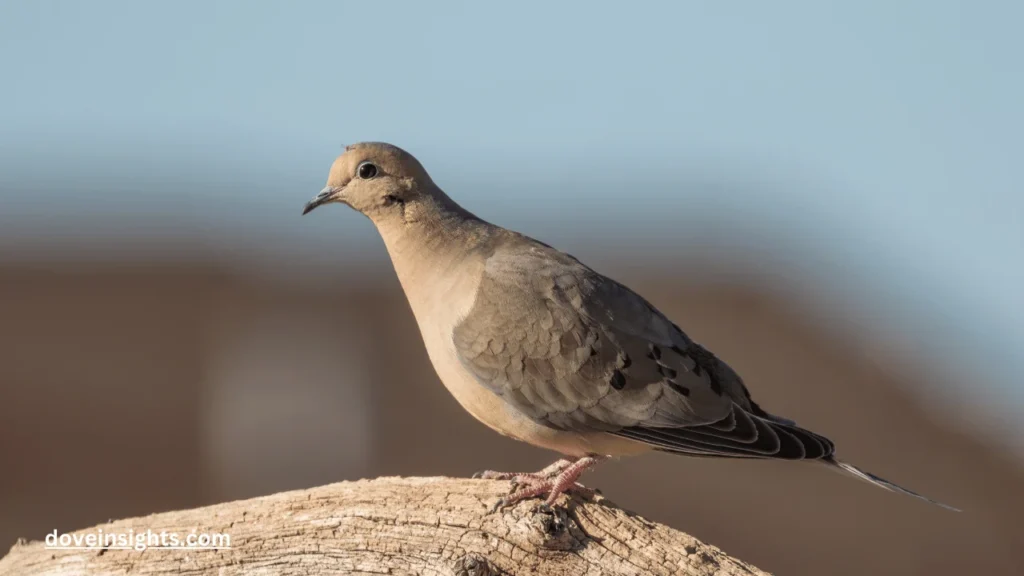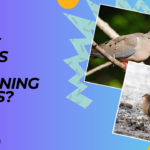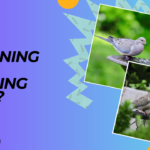Have you ever wondered what happens to birds after the sun sets?
While many assume that birds rest quietly at night, the reality is more complex for certain species. Doves, known for their calm demeanor and graceful flight, often leave us questioning their nighttime habits.
Do they take to the skies under the cover of darkness, or do they remain grounded until dawn?
Understanding the flight behavior of doves at night is more than just an intriguing question—it reveals fascinating insights into their survival instincts, environmental adaptations, and biological rhythms.
This article explores whether doves fly at night, the reasons behind their behavior, and the unique circumstances that might influence their nocturnal activity.
Contents
The Natural Behavior of Doves
To understand whether doves fly at night, it’s important to first explore their general behavior:
- Daytime activity: Doves are diurnal creatures, meaning they are primarily active during daylight hours. They spend their days foraging, nesting, and socializing.
- Resting at night: Like most birds, doves roost at night to conserve energy and avoid predators. Their roosting sites are carefully chosen for safety and comfort.
- Adaptations for daylight: Doves have excellent vision in bright light but are less equipped for low-light conditions, which makes night flying uncommon.
This foundation explains why doves are generally inactive after sunset.
Exceptions: When Doves Might Fly at Night
While doves are not naturally nocturnal, there are specific scenarios that might prompt nighttime flight:
- Disturbances or threats: If startled by predators or loud noises, doves may take flight to escape danger, even in the dark.
- Migration patterns: Some species of doves, like the migratory turtle dove, may extend their flight into twilight or early night hours during long journeys.
- Artificial lighting: Urban environments with streetlights can sometimes disrupt their natural rhythms, leading to unusual nighttime activity.
These exceptions show that doves can adapt to certain situations, even if nighttime flight is not typical.
The Biological Factors Behind Nocturnal Flight
The question of whether doves fly at night ties closely to their biological makeup:
- Vision: Unlike nocturnal birds like owls, doves lack specialized adaptations for night vision, making nighttime flight more challenging.
- Energy conservation: Flying consumes significant energy, and doves conserve their resources by resting during the night.
- Circadian rhythms: Doves’ internal biological clocks align with daylight activity, reinforcing their diurnal nature.
These biological factors limit their ability and inclination to fly at night, except under extraordinary circumstances.
Comparing Doves to Other Birds
To better understand dove behavior, it helps to compare them to birds with different habits:
- Nocturnal birds: Species like owls and nightjars are specially adapted for night activity, with keen vision and silent flight.
- Crepuscular birds: Some birds, such as swifts, are most active during twilight but rarely extend their activity into full darkness.
- Other diurnal birds: Like doves, most diurnal species, including sparrows and pigeons, rely on daylight for their daily routines.
Doves fall firmly within the diurnal category, emphasizing their reliance on daylight for navigation and survival.
How Environmental Changes Affect Dove Behavior

Human activity and environmental factors can influence doves’ natural patterns:
- Urbanization: City lights and noise can disrupt doves’ sleep cycles, potentially leading to occasional nighttime activity.
- Climate changes: Shifts in weather or temperature may alter doves’ routines, particularly during migration or breeding seasons.
- Predator dynamics: Increased nighttime predator activity might force doves to adjust their behavior to ensure safety.
These external factors demonstrate how adaptable doves can be, even within their primarily diurnal framework.
Conclusion
So, do doves fly at night? The answer lies in understanding their natural instincts and adaptability.
While doves are diurnal by nature, certain circumstances—such as danger, migration, or environmental disruptions—may prompt them to take to the skies after dark. However, their biological design and preference for daylight activity mean that nighttime flight is the exception rather than the rule.
By examining their behavior, we gain deeper insights into the fascinating ways doves navigate their world and adapt to challenges.
Whether in daylight or under the rare moonlit sky, doves remain a symbol of grace and resilience in nature.
FAQ’s
Are doves nocturnal birds?
No, doves are diurnal, meaning they are active during the day and rest at night.
Why might a dove fly at night?
Doves may fly at night if startled, threatened, or during migration when extended flight is necessary.
Can doves see well in the dark?
Doves do not have the specialized vision of nocturnal birds, making it harder for them to navigate in low light.
Do doves migrate at night?
While most of their migration occurs during the day, some doves may fly into the early night hours to complete their journey.
How does urban lighting affect doves?
Artificial lights in urban areas can disrupt their natural sleep patterns and occasionally lead to nighttime activity.
Do all dove species avoid flying at night?
Most dove species are diurnal, but migratory species like turtle doves may occasionally extend their flight into the night.








